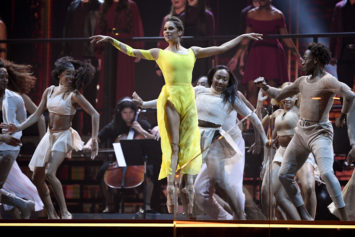Ballet dancer Misty Copeland made history in 2015 as the first Black female principal dancer in the American Ballet Theatre. Copeland, being thrust into the spotlight, has been using her platform to speak out against social issues, growing her visibility to an audience that might otherwise not have known about her.
Still, the 37-year-old admits that it wasn’t until the protests surrounding George Floyd’s death, that she “truly felt heard,” telling Yahoo Finance in a July 21 interview that the series of events was a “perfect storm.” As previously reported, Floyd, a Black man, lost his life on May 25 after a Minneapolis police officer crushed his knee on Floyd’s neck for nearly nine minutes.

Copeland told the outlet, “For me, it’s the first time, in my position, that I feel like I’m truly being heard.” She continued, “And to me, that’s a step. You know, this has been my life’s work as a dancer: speaking about racism in the world, and in ballet, speaking about the lack of diversity. And to have my company, to have the ballet world listening, and to have different panels to speak about this — in a way that I have before, but again, for the first time, people are really seeing it.”
Copeland concluded. “And I think that’s what’s different about this time, is that I feel like we have true allies and people from other communities and races that we’ve not had before.”
The ballet icon has been using her platform in other ways, including organizing a massive worldwide ballet performance to assist dancers affected by the COVID-19 pandemic.
In May, the star, along with famed dancer Joseph Phillips, put together a virtual ballet performance entitled “Swans For Relief” with 32 dancers representing 22 companies in 14 different countries to support members of the ballet community whose livelihoods were affected by the pandemic.
At the time, Copeland released a statement saying, “The theater thrives on people coming together to experience a performance. Because of the coronavirus, the livelihood and careers of dancers are in jeopardy, and this will continue to have massive effects even after we start to re-open our cities.”
The world’s top dancers recorded six-minute performances of Camille Saint-Saëns’ The Dying Swan, Le Cygne (The Swan), predominantly filmed in their homes and backyards. Although the recitals were free on YouTube, viewers were encouraged to donate to the fund. The organization raised almost half of its $500,000 goal in less than a week.


